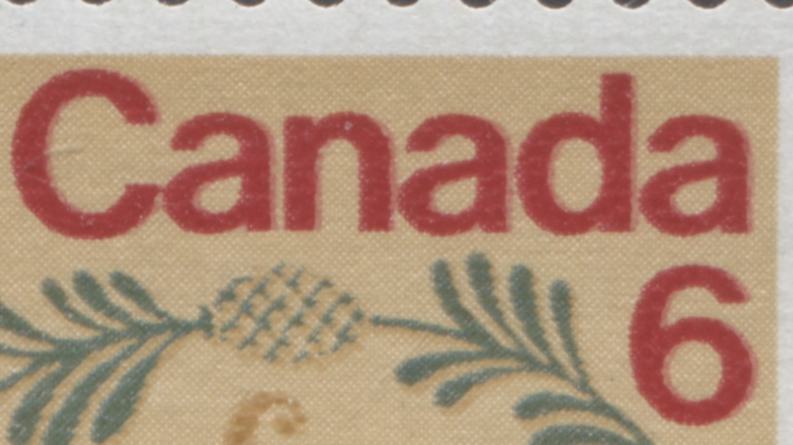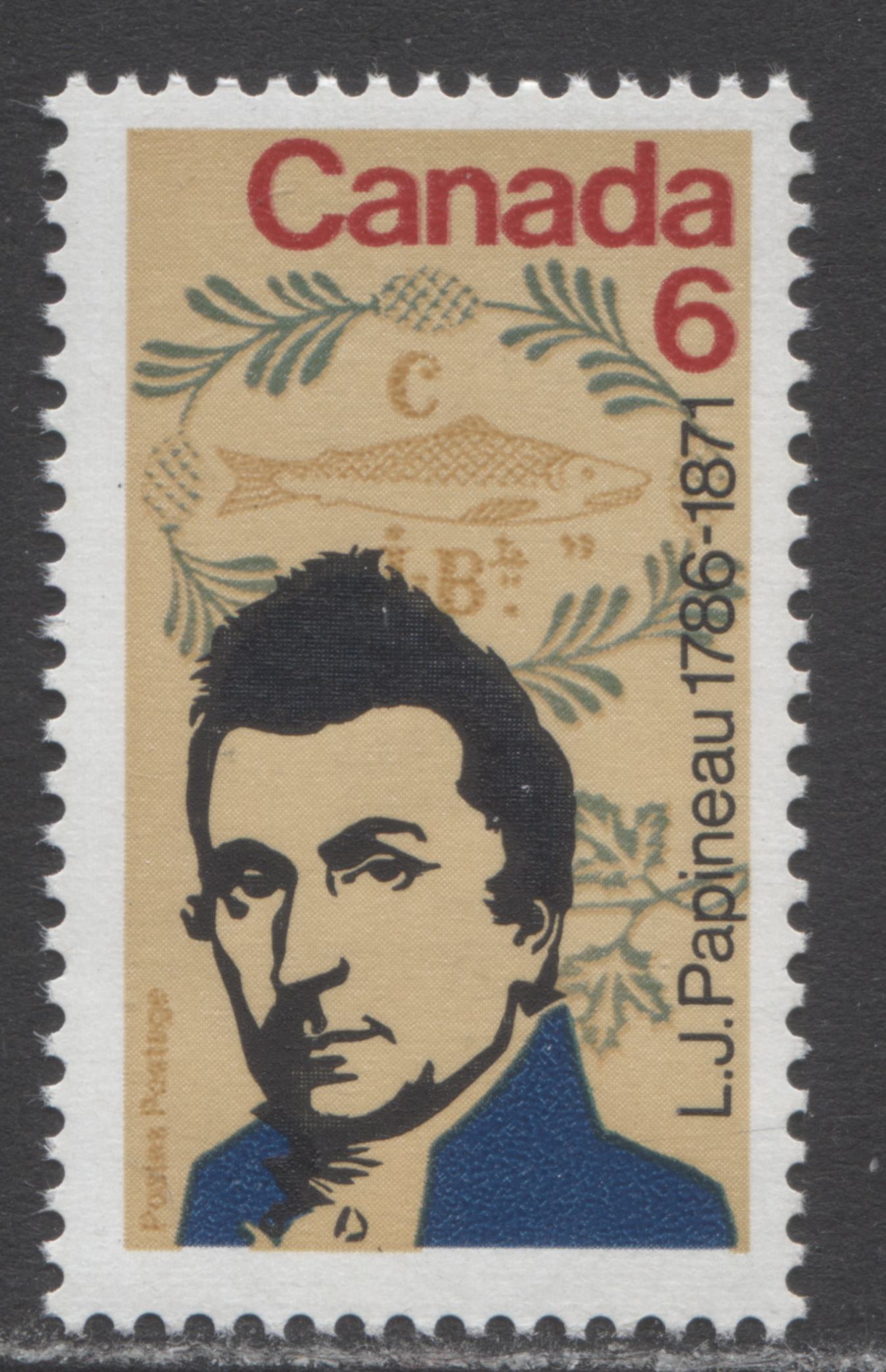Brixton Chrome
Canada #539ivar 6c Multicolored Louis Joseph Papineau, 1971 L.J. Papineau, A FNH Single With Weak Kiss Print Doubling Of 'Canada 6' On DF/DF Bluish Gray Paper, Matte PVA Gum
Canada #539ivar 6c Multicolored Louis Joseph Papineau, 1971 L.J. Papineau, A FNH Single With Weak Kiss Print Doubling Of 'Canada 6' On DF/DF Bluish Gray Paper, Matte PVA Gum
Couldn't load pickup availability
A FNH single of the 6c multicolored Louis Joseph Papineau from the 1971 L.J. Papineau with weak kiss print doubling of 'canada 6' on DF/DF bluish gray paper, matte pva gum.
Unitrade values this at $5. The stamp offered here grades 70 as follows:
Centering/Margins: 40/70
Paper Freshness: 5/5
Colour: 5/5
Impression: 5/5
Absence of Visible Paper Flaws: 5/5
Perforations: 10/10
On this issue printed by BABN, a new type of chalk surfaced paper appears for the first time, which has the stiffness similar to earlier issues, but not thick like the earlier surfaced papers. The default fluorescence level is DF on both the front and the back. Unitrade does list a F/MF paper, but to us this paper is always DF on the front, and there are several variations of the fluorescence as seen from the back. Three different types of gum are found on this issue, two of which appear to have been experimental, due to the fact that they do not continue to be used on subsequent issues. The first is the normal shiny PVA, which looks the same as that found on most other issues of the period. The second type is similar, but has a much lower sheen, and is much thinner. You can see that the stamp has gum, but it appears to be a much thinner gum than normal. The third type is an invisible gum, just like the DAVAC gum used by CBN on the 1966 Traffic Safety or 1967 Centennial issues. Stamps with this gum appear to be ungummed, but we test licked a stamp with this gum and stuck it on an envelope, and can say that it stuck just as well as one with the regular PVA gum.
In describing fluorescence on these issues and all the stamps issued after 1970, it is critical to understand the Irwin-Freeman scale of fluorescence, which ranges from 0 to 12 and that a particular designation like say HB or HF will correspond to more than one fluorescence level. One pitfall that many collectors fall into is to compare the papers, rank the fluorescent reactions from low to high and then try to force them into the DF/LF/MF/HF and HB nomenclature, rather than recognizing that three different levels of reaction may actually correspond to the same designation. This is why Unitrade's listings for this period are so confusing. Generally HB corresponds to levels 10 through 12; HF, levels 8 and 9; MF, levels 7 and 6; F, level 5; LF, levels 3 and 4; DF, levels 1 and 2 and finally NF corresponds to 0.
Share




